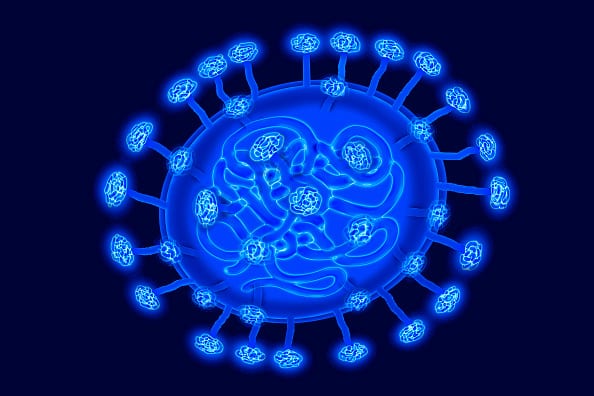Coronavirus is a broad family of viruses. They are named after their microscopic appearances; since they look like a crown.
Coronavirus comes from animals. So how are they transmitted to us, humans? Yes, by eating them. New viruses outbreak to humans usually originate in animal hosts. Ebola, SARS and MERS are examples.
The recent coronavirus outbreak originates from a new strain of coronavirus affecting exotic meat consumers in Wuhan, China. Many of those infected have either worked or frequented the Huanan Seafood Market, in the central city of Wuhan. Chinese officials said that the virus may have originated in a wild animal sold at the food emporium.
Among the wild animals that are sold in this market are live foxes, crocodiles, wolf puppies, giant salamanders, snakes, rats, peacocks, porcupines and camel meat. In fact, there is a shockingly total of 112 items in all!

Has there been other coronavirus outbreaks?
As a matter of fact, yes. SARS and MERS are both caused by coronaviruses that came from the animals. SARS was linked to Chinese consumption of civet meat. Meanwhile, MERS was thought to be originated from bats and camel.
If you remember SARS in 2002, you would have probably remembered the global panic it caused after infecting more than 8,000 people and killing more than 750. MERS, though it appears to be less contagious from human-to-human contact, has greater lethality. In 2012, MERS reportedly killed 35% of about 2,500 infected people.
What are the symptoms?
Coronavirus typically causes relatively mild upper respiratory diseases or the common cold. However, the new coronavirus outbreak causes severe low respiratory tract disease or pneumonia. If we are infected, we will suffer coughs, fever and breathing difficulties. In severe cases, we could even succumb to organ failures.
As this is a disease not caused by bacteria, antibiotics are of no use. The antiviral drugs we have against the flu does not work against coronavirus. Recovery depends on the strength of our immune system.
How does it spreads?
China has confirmed that human-to-human transmission as the cause of the recent viral outbreak of coronavirus. So far, we have seen over 800 cases and 25 deaths in China. However, in the past week, the number has more than tripled.
As a matter of fact, we may have underestimated the actual number of people to have contracted the virus. People with mild symptoms may not have been detected yet.
It does not help that the outbreak happens during Chinese New Year. It is a time of which more and more Chinese travel around the world to celebrate the holiday with their family. So it is not surprising to see the outbreak has been spreading to other countries such as Hong Kong, Macau, Japan, Nepal, Singapore, South Korea, Taiwan, Thailand, US and Vietnam.
At what point should we go to the doctor?
If you have recently travelled to China and suffers cough or cold symptoms, you should go to the doctor. Perhaps you have not travelled to China. But you have been in contact with someone who does. You should go to the doctor if you are having a cough or cold symptoms.
Other than that, you should treat any cough or cold symptoms as normal.
Is this any worse than normal influenza?
We don’t know yet how dangerous the new coronavirus is. There may be a far larger pool of people who have been infected but have not suffered severe enough symptoms to go to the hospital. So they have not been counted in actual data.
Since this new strain of coronavirus is unbeknownst to scientists, we do not know how contagious it could have been. Plus, there is still no vaccine for it. This means leaving patients vulnerable to death.
As of now, health officials resort to early prevention methods and regular flu vaccine to combat the outbreak. Meanwhile, medical labs are working hard to develop a rapid diagnostic test and a new vaccine.
Should we panic?
No. The virus outbreak outside China is worrying. But it is not an unexpected development. Often viruses that spread easily tend to have a milder impact.
Plus, our past experiences in handling SARS and MERS should equip us the know-how to do two things. One, develop a new vaccine. Two, screening early signs of the illness before patients become severely ill.
